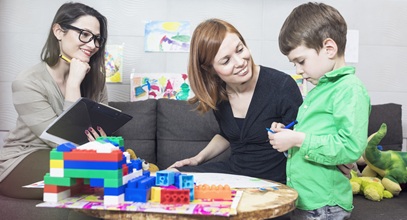The term “social media addiction” is frequently seen in headlines and tossed around by television pundits. But society should not be so quick to attach the term “addiction” to social media activities, experts say.
“Addiction is a word that should not be used lightly to describe a set of behaviors,” says Mark Fabbri, director of the Psychology degree program for South University. “Addiction is related to a compulsion to consume something or engage in a set of behaviors to the point that it significantly interferes with a person’s life.”
The dictionary defines addiction as “the state of being enslaved to a habit or practice or to something that is psychologically or physically habit-forming, such as narcotics, to such an extent that its cessation causes severe trauma.”
Fabbri points out that common, identified addictions include sex, gambling, various substances, and even the internet.
“Any action can become addictive if it has a negative significant impact on a person’s life, but I would caution using the term addiction outside its intended definition,” he adds.
Social Media Addiction?
Adam Singer, the analytics advocate for Google, wrote a blog post for his media blog, The Future Buzz, titled Why ‘Social Media Addiction’ Makes Absolutely Zero Sense. He says individuals who abuse something, like social media, to the extent that it causes problems in their lives probably have deeper issues.
“I think social media addiction is something being played up in the media because it is a hot topic right now,” Singer says. “A lot of people are leveraging that for story ideas, or to trump up the value of something whether that’s products that stop access to social sites at work or psychologists trying to sell different services. There are motivators to playing it up.”
Neil Vidyarthi is managing editor of Social Times, a blog which covers the stories of the people in the business of social media. He says he personally believes social media can be addictive, using Facebook as an example.
“There’s a voyeuristic tendency none of us realized would be so high,” he says. “That’s why there are 500 million users spying on one another. We’re all interested in what others are doing. Facebook does something you could never really do before. Now you have this real-life, breathing example right in front of you and it’s so fascinating to people and they can get addicted.”
But Fabbri cautions that there is a big difference between addiction and overuse of social media.
“An addiction will cause the individual to lose out on other things on life,” he adds. “For example, spending so much time on social networks at work causes the individual to lose their job. A person can spend too much time in social networks but still are able to function adequately in life. Like any activity there is a need to find balance in what we do.”
An article in Psychology Today called Social Media Addiction: Engage Brain Before Believing echoes Fabbri’s assertions, saying “it concerns me that, as a society, we are very cavalier tossing around the concept of ‘addiction.’ Addiction is a serious psychological diagnosis based on specific and seriously life-impairing criteria.”
Fighting Social Media Addiction
To combat overuse and prevent any type of addiction, real or perceived, Vidyarthi recommends keeping the computer in a common area of the house, especially for families with children.
“It’s a huge challenge,” he says. “I do think you can stay on Facebook for four or five hours and that can be dangerous. People should limit themselves to knowing they can only have one or two hours per day.”
Studies on social media as an addiction are scarce and inconclusive. Vidyarthi believes that eventually there will be more data on the topic and until then, it affects how much his site covers the topic.
“There isn’t enough conclusive evidence or studies that have been done about it yet,” he adds. “But they will certainly come out.”
Communication with vs. Addiction to Social Media
Meanwhile, as the popularity and usage of social media increases, it changes the way we communicate with one another.
“Social networking has become not only a vehicle to communicate but a reason to communicate and share personal thoughts and ideas,” Fabbri says.
In some cases, he continues, it is replacing other forms of communication, such as face-to-face interactions.
“Again, social interaction through social media isn’t a bad thing,” he adds. “From a personal perspective I have enjoyed posting blogs; it has given me an avenue of expressing an opinion where I hadn’t the opportunity in the past. Utilizing social media to engage in social interactions is just another alternative. The key is to be able to balance the use of this exciting form of interaction with all the other aspects of our lives.”
Or as Singer points out, it may be that social media channels are becoming the predominant form of communication, especially amongst younger generations.
“When the phone was the predominant form of communication, did we say that teens had phone addiction? Probably not,” he says. “This is just the normal mode of communication for them.”




